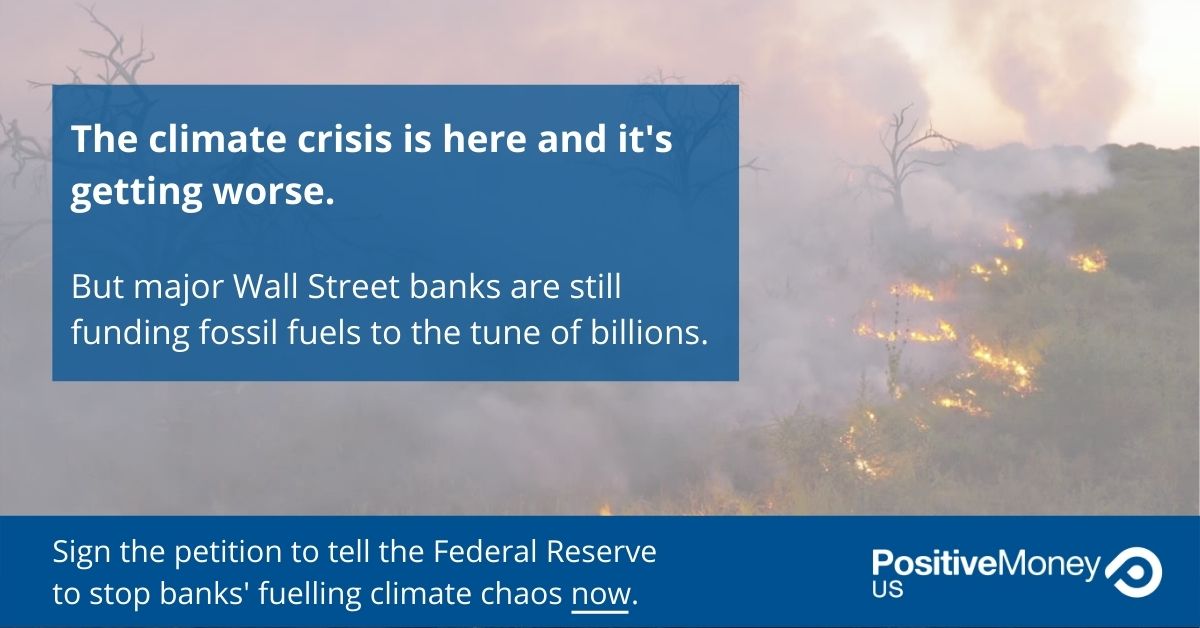Tell the Federal Reserve: Stop banks' fuelling climate chaos
The Federal Reserve Board of Governors

The climate crisis is here and it's getting worse. Record shattering heatwaves, floods and wildfires are uprooting whole communities, wreaking havoc around the world. And this isn’t good news for our jobs and economic security either – there’s no hope of stability on a planet that lurches from one crisis to the next.
But major Wall Street banks are still funding fossil fuels to the tune of billions. There's one banking regulator that has the power - and the obligation - to rein in this reckless behavior: the Federal Reserve, the U.S. central bank.
So thousands of us are coming together to pile the pressure on the Fed to do the right thing. The more of us who add our names, the more likely they’ll step up. Tell the Fed to stop banks' fuelling climate chaos!
Sponsored by
To:
The Federal Reserve Board of Governors
From:
[Your Name]
I urge the Federal Reserve Board of Governors (Fed) to follow the lead of the Office of the Comptroller of the Currency (OCC) and the Federal Deposit Insurance Corporation (FDIC) and issue climate-related risk management principles for the large banks under its supervision.
Climate-related financial risks to banks' safety and soundness are well-documented and accelerating. These risks include the physical impacts of climate change on communities, households, and businesses and the transition risks that arise as society reorients toward a clean energy economy. The Fed has a mandate and responsibility to address climate-related financial risks to banks.
The Fed’s climate supervisory principles should advise banks to:
- take a whole-of-business approach to mitigate climate risk;
- consider appropriate time horizons for assessing and addressing climate risk;
- conduct robust climate scenario analysis modeling and review results with bank supervisors;
- align internal strategies with their public climate commitments, both of which should be guided by science-based metrics and targets;
- respect Indigenous rights and ensure the projects and companies they fund uphold Free, Prior, and Informed Consent and tribal sovereignty; and
- recognize where and how risk-management measures could have adverse effects on low-income communities and marginalized households and communities, and take steps to understand and fully mitigate these risks.
The Fed’s principles should also recognize that continued financing of greenhouse gas emissions by supervised banks is exacerbating climate-related financial risk by directly increasing transition risk and contributing to physical risk, both of which in turn threaten their own stability and that of the financial system as a whole.
In addition to joining the OCC and FDIC in publishing supervisory principles, the Fed should work with them to follow up soon with more detailed guidance.
Sincerely,

